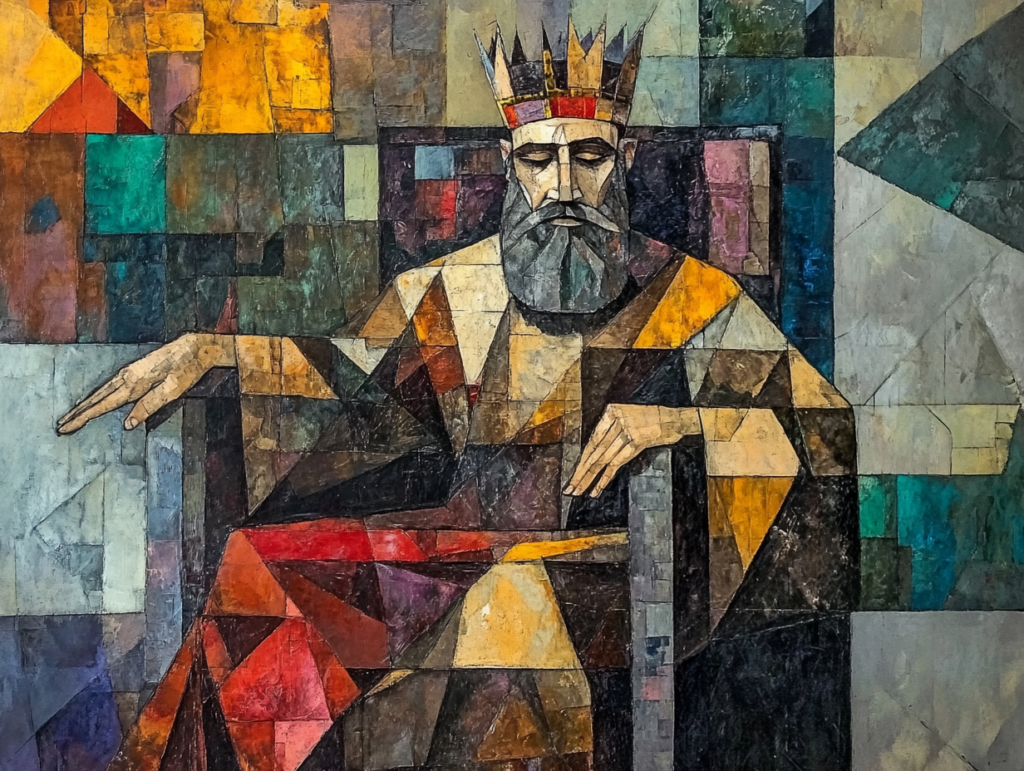The divine right of kings is one of history’s most audacious power plays—a political theory that essentially says, “I’m in charge because God said so.” Monarchs throughout Europe wielded this doctrine like a holy scepter, justifying their absolute rule by claiming they were directly appointed by the Almighty. Forget elections, parliaments, or even the will of the people; in this worldview, earthly rulers were accountable to no one but God. To challenge a king’s authority was not just treason—it was blasphemy.
Core Principles of the Divine Right of Kings
At its heart, the divine right of kings boiled down to a few central tenets, all of which worked to reinforce the unassailable power of monarchs:
- Divine Authority: Monarchs didn’t just claim political power—they asserted that their right to rule came straight from God. No earthly institution could grant or revoke this authority. In the grand cosmic hierarchy, the king was just one step below God Himself.
- Absolute Power: Under this system, the monarch had total, unquestionable power. Whether dealing with rebellious nobles, restless clergy, or the murmurs of an unhappy populace, the king was above it all. No parliament, no council, and certainly no commoner had any right to challenge royal decrees.
- Accountability to God Alone: This was the ultimate trump card. If a king was unjust, cruel, or tyrannical, only God could judge them. The people were meant to suffer in silence, trusting that divine justice would eventually come—likely in the afterlife, but certainly not on the earthly plane.
- Sacrosanct Rule: Any attempt to restrict or overthrow the monarch wasn’t just an act of political rebellion; it was an affront to God’s will. Deposing a king was painted as sacrilege, a sin of the highest order.
Justifications and Interpretations
Monarchs and their theologians weren’t content with just making grand claims; they sought to root their power in religious texts and metaphors that reinforced their divine legitimacy.
- Biblical Backing: Monarchs often cited verses like Romans 13:1 (“Let every soul be subject unto the higher powers…”) to suggest that their rule was divinely sanctioned. The Bible became a political tool, shaping earthly governance with the weight of holy writ.
- Metaphorical Comparisons: Kings weren’t just leaders—they were God’s lieutenants on Earth, strict father figures to their subjects (parens patriae), and the heads of the body politic. This imagery elevated their role from mere mortal ruler to something quasi-divine, making any opposition seem unnatural.
- Pre-selection by God: Some went even further, claiming that kings were chosen by God and predestined to rule others before they were born. This preordained selection made their authority seem as inevitable as the rising sun.

Historical Context and Evolution
The divine right of kings didn’t just spring out of nowhere—it was the product of centuries of theological and political evolution.
- Medieval Roots: The seeds of the doctrine were planted in the medieval period when rulers were seen as having been granted power by God to maintain order on Earth. But it wasn’t until later that the idea was fully weaponized by monarchs to cement their grip on power.
- Reformation Impact: The Protestant Reformation inadvertently turbocharged the doctrine. As monarchs in Protestant countries broke away from the Catholic Church, they claimed not only political but also religious authority. The king was no longer just a ruler but also the defender of the faith—a potent combination.
- Peak Influence: The divine right of kings reached its zenith in the 16th to 18th centuries, particularly under figures like James I of England and Louis XIV of France. These monarchs were its fiercest proponents, with Louis famously declaring, “L’état, c’est moi”—“I am the state.”
Implications of the Divine Right
This doctrine wasn’t just abstract theology—it had real-world consequences that shaped politics, religion, and society.
- Absolutism: The divine right of kings was often used to justify absolute monarchy, where the king held total control over the state. It concentrated power in the hands of one individual, with no checks or balances to limit their rule.
- Religious Authority: Monarchs also claimed the right to enforce religious uniformity. In Protestant nations, kings became heads of the church, dictating what their subjects could believe and how they could worship. This fusion of political and religious power only made them harder to challenge.
- Resistance to Reform: The doctrine was a powerful bulwark against efforts to limit royal authority. Calls for more representative government or constitutional limits on monarchical power were met with accusations of heresy or treason.
Decline and Legacy
As potent as the divine right of kings was, it eventually met its match. The Enlightenment, with its emphasis on reason, individual rights, and the social contract, dealt a fatal blow to the idea that kings ruled by divine mandate. The English Civil War, the Glorious Revolution, and the French Revolution all demonstrated that the people—and their representatives—were no longer willing to accept unchecked royal power.
But even as the doctrine waned, its echoes can still be felt. The idea that rulers are chosen by a higher power hasn’t entirely disappeared—it just takes on new forms. From autocratic strongmen who claim destiny to religious leaders with political power, the shadow of the divine right lingers on, reminding us of the dangerous allure of absolute authority cloaked in divine justification.
In the end, the divine right of kings was a masterful fusion of theology and politics, granting monarchs an iron grip on power that was, for centuries, unassailable. But as history shows, even claims to divine authority can’t stand forever against the rising tide of human agency and the demand for justice.
Comments are closed.